
The Palais Garnier – home to the Opera Nationale de Paris – may well be one of the most lavish places I have set foot in. Designed by Charles Garnier (who also designed the Casino de Monte Carlo), it is spread over seventeen storeys and contains two ballet companies.
Having read Gaston Leroux’s book The Phantom of the Opera, and being a fan of Andrew Lloyd Webber’s musical, I was curious to know what the real Paris Opera was like. I booked a guided tour of the Palais Garnier, and was on the lookout for signs of the opera house’s most infamous resident.
The Subscriber’s Rotunda
Guided tours begin in the la rotonde des abonnés. While you are sitting on the circular red velvet chaise, you can imagine men dressed in their finest suits and hats and ladies glancing at their reflections in the mirrors that line the room. On the ceiling, the intermingled letters spell out the name of the architect: CHARLES GARNIER and the dates of construction: 1861 – 1875. The rotunda is impressive by itself, but it is nothing compared with the rooms to come.
The Grand Staircase
The Grand Staircase is almost overwhelming. You have to stand still for a few minutes to take it all in. As you ascend the stairs, it’s hard to know where to look – at the statues and busts that line the doorways, the decorative marble and lamp fittings, or at the painting on the ceiling? Take the time to appreciate the full splendour of the Grand Staircase.

The Grand Foyer
Walking along the Grand Foyer, you feel like you are in a grander version of the Hall of Mirrors at the Chateau de Versailles rather than in an opera house in the middle of the city. They have similar designs – a long room along the side of the building with mirrors along one wall and large windows on the other. The Grand Foyer is decorated in musical motifs and along with the Grand Staircase is one of the most sumptuous rooms open to the public in the Palais Garnier.
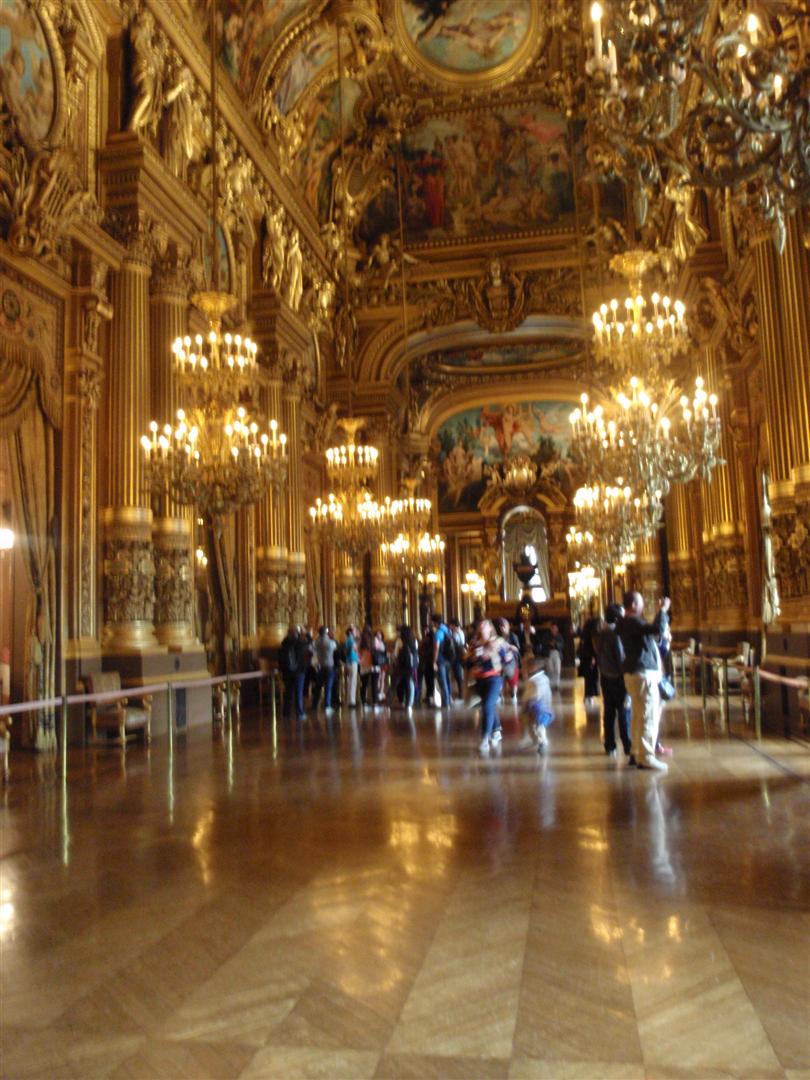
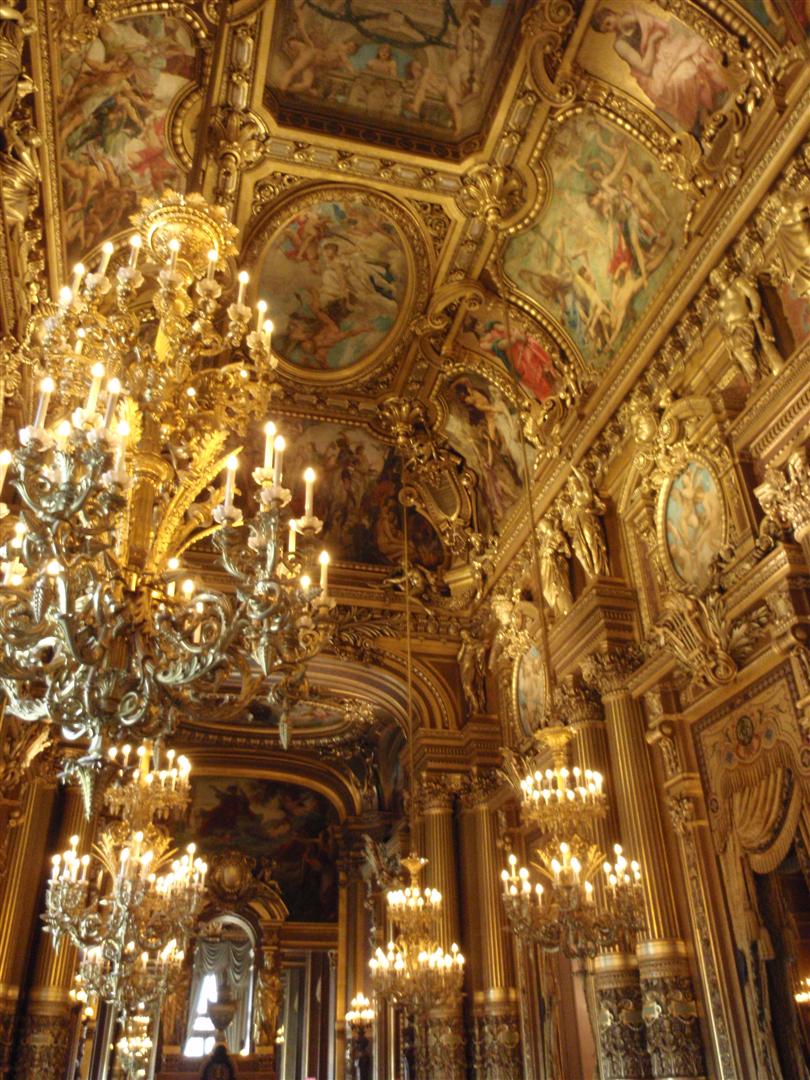
The Auditorium
After the splendour of the grand staircase and the grand foyer, passing through the corridor that separates them from the auditorium seems anti-climactic. Dark and plain, it provides a welcome rest for your eyes as you wait to be shown to your seat.
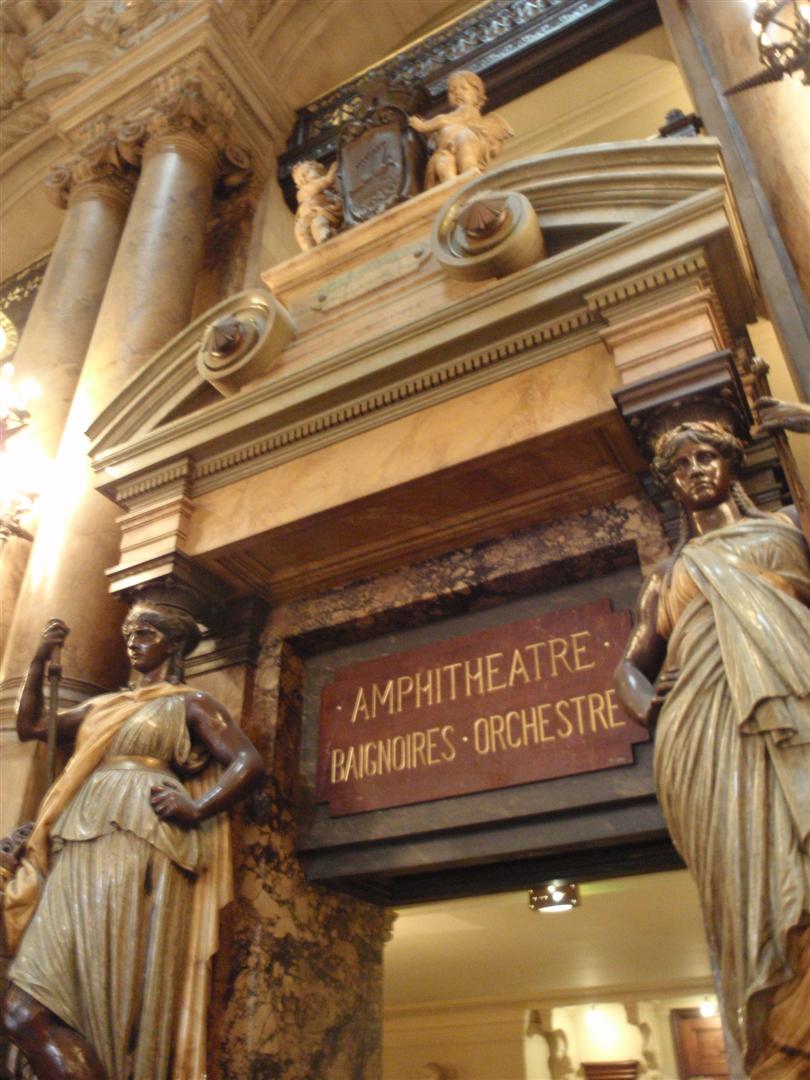
Off to the side, you’ll find Napoleon III’s entrance, which was especially designed for him to limit the risk of assassination. The Emperor’s carriage could be driven up into the Palais. From here, Napoleon III would be mere steps away from the Royal box. The entrance is also plainer than the rest of the theatre – war broke out and Napoleon III was deposed before the entrance could be decorated.
Once you have taken your seat inside the auditorium, your eyes start to wander again from the rows and boxes of red velvet seats, up to the ceiling with the glittering chandelier and Chagall’s painted ceiling insert depicting twelve famous operas.
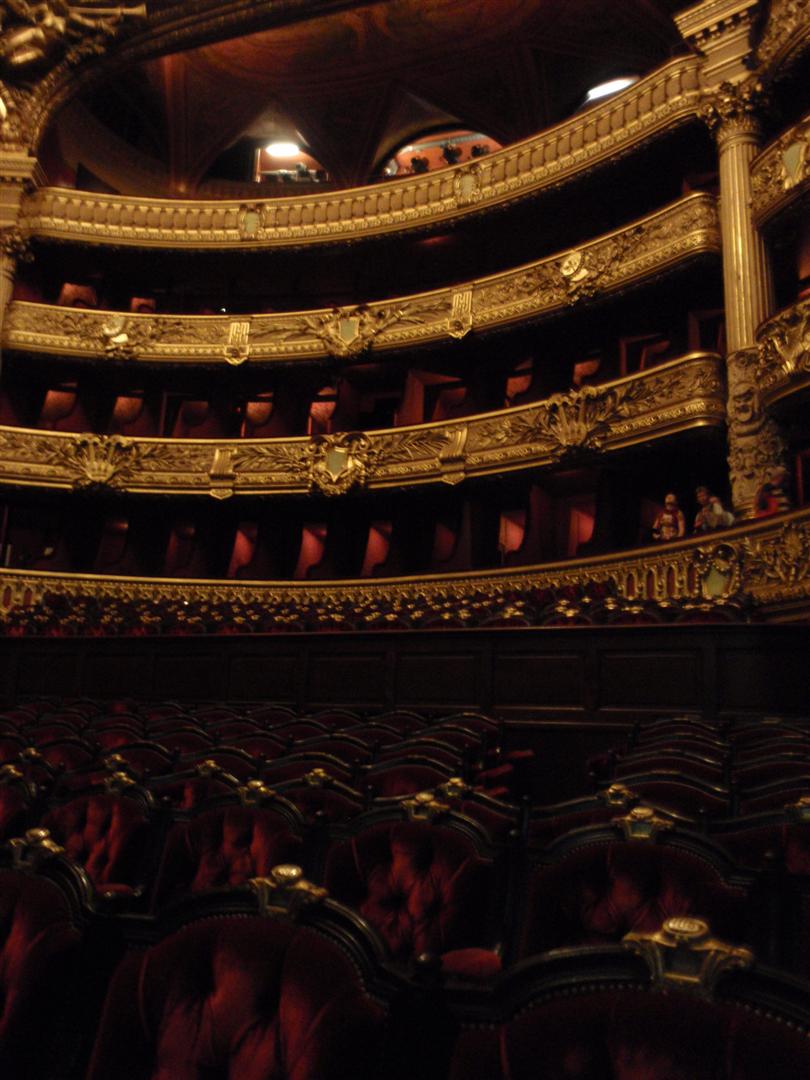

And as for the Phantom?
While the tour of the Palais Garnier doesn’t take you backstage, or to the fabled underground lake below the building, the Palais Garnier does pay their respects to the legacy and legend of the Phantom of the Opera. The Phantom’s standing request for Box Number 5 is noted with a plaque, marking it as the Loge du Fantôme de l’Opéra. Are you brave enough to book it?
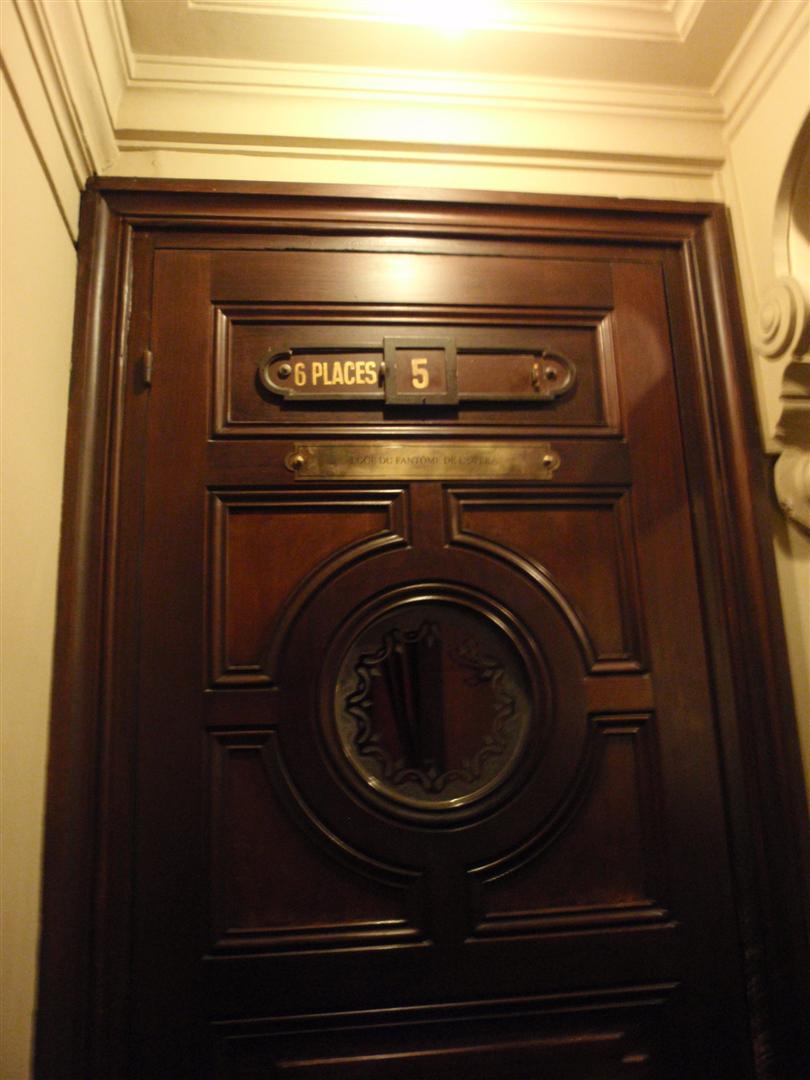
I’d be careful if I were you. You never know where the Phantom may lurking!

- Closest metro station: Opéra
The Opéra station is right in front of the Palais Garnier. - Check the official website of the Palais Garnier for entry information and tour schedules
- Would you go and see: Andrew Lloyd Webber’s musical The Phantom of the Opera if it was being staged in the Palais Garnier? It hasn’t been done, but I like the idea of watching it in the very theatre where the story is set.
